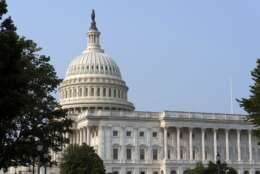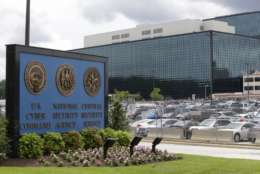Budget
-
Federal News Network has collected documents and articles from the White House, the Government Accountability Office and the private sector to help federal employees plan for a government shutdown.
September 22, 2023 -
With the collapse of House Speaker Kevin McCarthy’s latest plan to avert a federal shutdown, lawmakers have left town with no endgame in sight.
September 21, 2023 -
The Postal Service’s regulator is looking to grow its tiny workforce to oversee some of the biggest changes in recent USPS history.
September 21, 2023 -
The IRS is planning to remain "fully operational," if Congress triggers a government shutdown at the end of this month.
September 13, 2023 -
The Postal Service’s regulator is getting a bigger budget to oversee a nationwide shakeup of the USPS delivery network — but it's not as big of an increase as it expected.
September 11, 2023 -
I speak with Dr. Makenzie Lystrup, Center Director, Goddard Space Flight Center in Greenbelt, MD.
August 18, 2023 -
I spoke with Dr. James Kenyon, Center Director, Glenn Research Center in Cleveland, Ohio.
August 18, 2023 -
Congress has passed just one of 12 bills needed to fund the government next fiscal year. When members return early next month, the question of further funding for Ukraine in its war with Russia will enter the funding debate.
August 14, 2023 -
The Biden administration is trying to address some more immediate spending needs through a supplemental request that will come up before Congress can pass the 2024 budget.
August 11, 2023 -
Most DHS employees can't telework, but Senate appropriators are evaluating the "impact" of alternative work arrangements across homeland security components.
August 03, 2023 -
Washington's ticker tape of controversy has wrapped around several agencies and departments. Republicans in Congress would fix things by cutting their budgets. But is that the best way to cause reform?
July 28, 2023 -
The Senate has passed a massive annual defense bill that would deliver a 5.2% pay raise for service members and keep the nation’s military operating. The Senate sidestepped more divisive policy matters to move the bill forward with an overwhelmingly bipartisan vote. The Senate's bill sets up a clash with the House, which passed its own version of the annual defense bill along party lines after repeated clashes over social issues like abortion access and diversity initiatives. The Senate bill authorizes $886 billion in defense spending for the coming year, in line with President Joe Biden’s budget request. Congress will have to allocate the funding later during the appropriations process.
July 27, 2023 -
The nominee to lead Cyber Command says the new authorities will put CYBERCOM on par with the likes of U.S. Special Operations Command from a programming and budgeting perspective.
July 24, 2023 -
Sen. Chris Van Hollen (D-Md.), chairman of the Financial Services and General Government subcommittee, said the debt ceiling caps required cuts to capital budget accounts and the Technology Modernization Fund didn’t make the cut.
July 13, 2023 -
The National Science Foundation (NSF) has awarded a 90-plus million grant with the purpose of improving understanding of weather.
July 11, 2023















